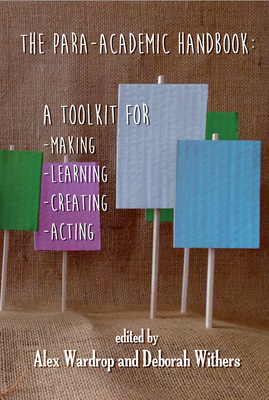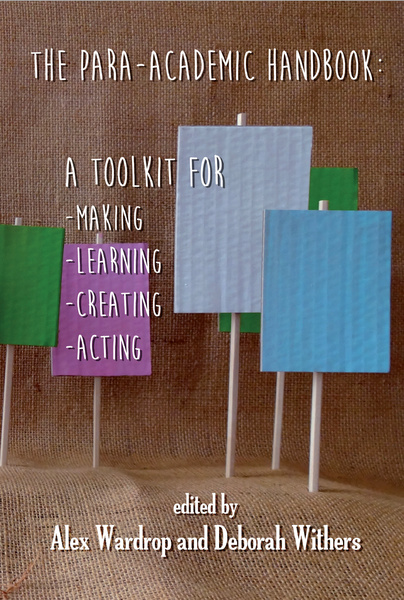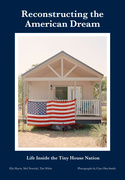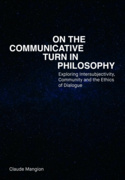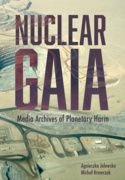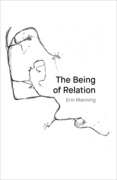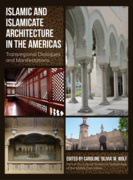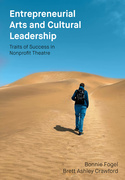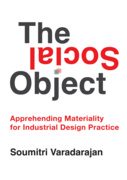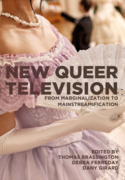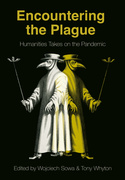The Para-Academic Handbook (Book)
A Toolkit for Making-Learning-Creating-Acting
Para-academic is a name for those under- and precariously employed, but actively working, academics in today's society. Specialists in all manner of things, from the humanities to the social and biological sciences, the para-academic works alongside the traditional university, sometimes by necessity, sometimes by choice, usually a mixture of both.
The e-book of this work is licensed under CC BY-NC-ND. To view a copy of the licence, visit https://creativecommons.org/licenses/by-nc-nd/4.0/
Open Access PDF of this title is available from OAPEN, at this link: https://library.
Edition
Frustrated by the lack of opportunities to research, create learning experiences or make a basic living within the university on our own terms, para-academics don't seek out alternative careers in the face of an evaporated future; we just continue to do what we've always done: write, research, learn, think and facilitate that process for others. As the para-academic community grows, there is a real need to build supportive networks, share knowledge, ideas and strategies that can allow these types of interventions to become sustainable and flourish. There is a very real need to create spaces of solace, action and creativity.
Para-academics mimic academic practices so they are liberated from the confines of the university. Our work, and our lives, reflect how the idea of a university as a place for knowledge production, discussion and learning, has become distorted by neo-liberal market forces.
We create alternative, genuinely open access, learning-thinking-making-acting spaces on the internet, in publications, in exhibitions, discussion groups or through other mediums that seem appropriate to the situation. We don’t sit back and worry about our career developments paths. We write for the love of it; we think because we have to; we do it because we care.
Foreword: We Are All Para-Academics Now Gary Rolfe
Para-academia: Reclaiming What Has Been Devastated Deborah Withers & Alex Wardrop
A Procrastination Alex Wardrop
Notes on the Prefix Alexander M. Kokoli
Spaces of Possibility: Pedagogy and Politics in a Changing Institution Lena Wånggren & Maja Milatovic
Interview with Joyce Canaan Joyce Canaan & Deborah Withers
A Pedagogics of Unlearning Éamonn Dunne & Michael O’Rourke
Emboldened and Unterrified: In/ Outside and – In Spite Of – The Neoliberal Academy Christian Garland
A Lesson from Warwick The Provisional University
Beyond the Defence of the Public University: Building a New Schole Kelvin Mason & Mark Purcell
Decentring Knowledge Production – Reflections on Learning Spaces In and Alongside Academic Institutions Laura Sterry
Edge, Empowerment and Sustainability: Para-Academic Practice as Applied Permaculture Design Tom Henfrey
Higher Degree (Un) Consciousness: A Frierean Approach to Post-Graduate Study Emma Durden, Eliza Govender and Sertanya Reddy
Crowdfunding of Academic Books: A Case Study Oliver Leistert & Theo Röhle
Para-Academic Publishing As Public-Making Paul Boshears
An Activist-Academic’s Reflections on Para-Academia Louise Livesey
No More Stitch Ups! Media, Research Justice and Fat Activist Community Knowledge Charlotte Cooper
Simultaneous Life and Death in Every Moment Georgina Huntley
On the Academy's Point of Exteriority/ DUST Manifesto Fintan Neylan
The Pros and Cons of Para-Academia: A Personal UK Perspective Tony Keen
Reflections of an Incidental Maverick Paul Hurley
Otherwise Engaged B.J. Epstein
Marginal Inquiries; Precarity, Parergons and Situated Knowledges Margaret Mayhew
Epicurean Rain Eileen Joy
Resources
This is a hugely important book for anyone who feels (as I often do) alienated or marginalised by corporate academic life. It not only gives a voice to a growing constituency of para-academics; it also articulates a series of alternative visions for the future of the university, driven not from the centre but from the margins, the borderlands, the places where the interesting stuff happens. As such, it should be read not only by those who already work in the margins, but by all academics, students, researchers and administrators from across the academy who wish to find out what they are missing.
Academia is dying, and in the process compulsively crushes the desires for learning, creating, teaching, cooperating it claimed to foster. It is a relevant and important political gesture to invent a name, para-academics, for those who refuse to be crushed, who do not sadly dream about a return to the past, when the 'worthy ones' were identified and separated from the flock, but inhabit interstices, inside, outside and in-between, activists and bridge-builders where separation prevailed. It is claiming they are alive, not just surviving, and are part of the fragile creation of a collective future worth living.
This important new book is simultaneously a critique, a lament and a re-envisaging. It is a compelling portrait of the new topographies of higher education and a testament to the power, inventiveness and resilience of those who work within, across and beyond its new spaces.

